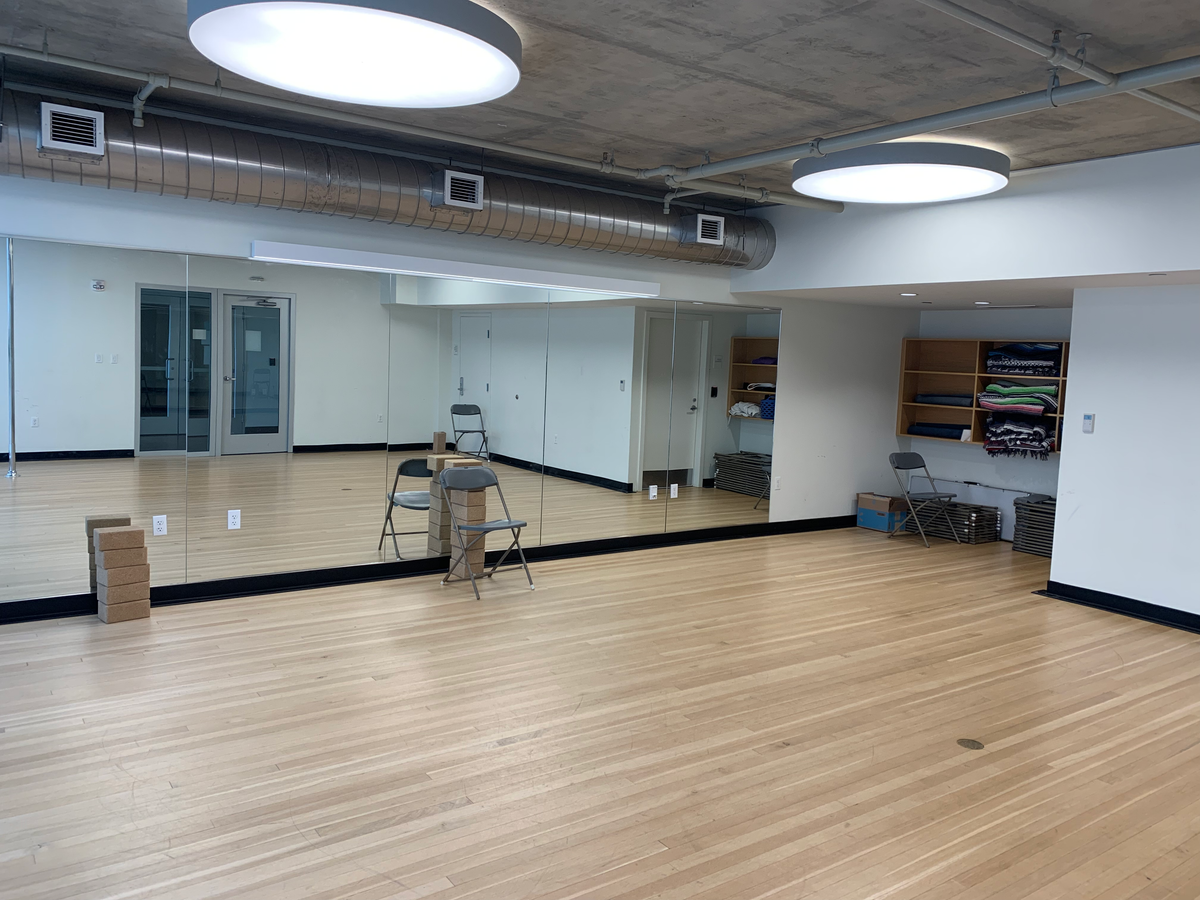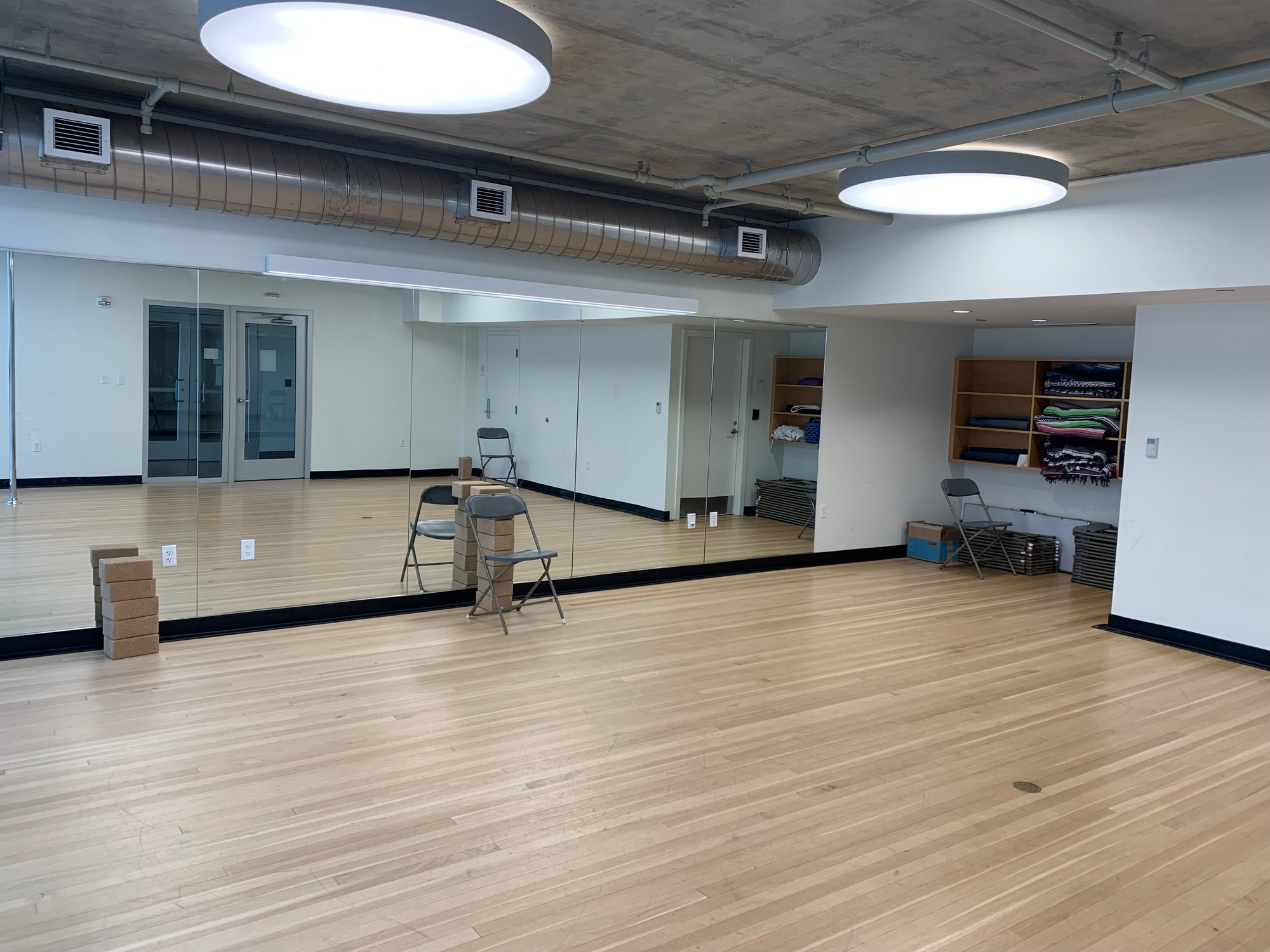Student Dance Groups Upset at Planned Conversion of Nicholls Biondi Studio
Student dance groups felt blindsided by the proposed conversion the Nicholls Biondi studio, a crucial rehearsal space, into a satellite fitness center. Administrators have since paused the project after receiving significant pushback.


A Feb. 10 email notice to students providing details on a new pilot program to convert the Nicholls Biondi studio space into a satellite fitness center generated intense backlash from student organizations that rely on the space, most notably dance groups on campus. The administration decided to pause the conversion after student dancers wrote an open letter expressing disappointment that the decision was made without consulting students or providing a functional alternative to the space.
The pilot program was first mentioned in an email that President Biddy Martin sent on Feb. 8 announcing the college’s new initiatives for improving community well-being. The email stated only that “students who need or prefer greater privacy than the Wolff Fitness Center affords will now have the option of using a range of exercise equipment at Nicholls Biondi.”
The Feb. 10 email, which was sent by the Office of Residential Life to “share more information about the pilot program,” detailed that the Nicholls Biondi studio would be furnished with “an elliptical, bikes, a treadmill, and free weights” in a conversion that would happen on Feb. 17.
The email also stated that the new fitness center would be accessible by all resident students and operate from 10 a.m. to 10 p.m. each day, adding that students and organizations who had already reserved the space would be “receiv[ing] communication from the Student Activities Office.” The email concluded by noting that Student Affairs would be gathering feedback to determine whether or not to continue or modify the new program.
The Nicholls Biondi studio is regularly utilized as a rehearsal space by the college’s four main student-run dance groups: Amherst Dance, Dance And Step At Amherst College (DASAC), Intersections Dance Company, and African and Caribbean Student Union Dance (ACSU Dance). In recent semesters, members of these groups have successfully advocated for additions to the studio space, including mirrors and marley floors, which are ideal for dance.
“They seem to have made this space specifically a space for the student body and student groups to use for practicing,” said Jonathan Paul ’22, an e-board member of ACSU Dance. “And then to see almost a complete 180 — it’s like, ‘Actually, you know what else has mirrors? The gym.’ Never mind that the floor isn’t conducive to gym flooring, and it’s specifically for dance.”
Dance groups were not given advance warning that the studio would be unavailable for rehearsal use after Feb. 17. Paul, along with the other students who had reserved the space for the semester, received an email from Student Activities informing them that their reservations would be canceled two hours after the notice from ResLife.
In the email, Student Activities suggested alternative spaces that dance groups found less than ideal, either because they don’t have proper equipment (such as the Friedmann Room in Keefe Campus Center, which doesn’t have mirrors), or because they are too far out of the way (such as Marsh House, which is about a 10-minute walk from campus). The email also stated that Student Activities “understand[s] the gravity of this change and the disruption it may create for some groups, … know[s] space on campus is strained and apologize[s] for any inconvenience this may create.”
“They were like, ‘By the way, you can no longer use this space. How about you use Marsh?’” Paul said about the email.
Together with Alexandra Sala ’22, an e-board member of Intersections, Paul wrote an open letter responding to the announcement, which garnered over 50 signatures from students and starts with a statement of frustration with the administration: “I’m honestly quite tired of administrators in positions of power making ‘unanimous’ decisions for ‘the betterment of student life’ without involving, including, consulting or considering the actual views of the students they’re ‘centering’ in their decisions.”
The letter goes on to call the announcement “as disrespectful as it was unwanted,” noting that many of the student groups who depend on the space — such as DASAC and ACSU Dance — are filled with and dedicated to highlighting the voices of minority students. The letter also expresses understanding for the administration’s desire to make working out accessible to students who feel uncomfortable going to the gym, but points out the important role dance groups already play in cultivating students’ well-being and sense of community.
“I do think that [privacy in the gym] is an issue that people have complained about,” acknowledged Molly Cooper ’22, an e-board member of Amherst Dance who signed the letter. But “this is another example of the intention being good, but the solution so misguided,” she said.
The pushback has led the administration to reconsider their plans for the space. “The move of the fitness equipment into Nicholls Biondi has now been paused in response to information from students about the difficulty of finding appropriate alternative spaces for dance and movement, specifically spaces with mirrors,” said Dean of Students Liz Agosto in a statement made to The Student on Feb. 15. “[I] will be meeting with student leaders from the dance organizations to discuss their space needs and see whether there is a way to meet those needs in spaces other than Nicholls Biondi.”
Although the pause is a short-term win for dance groups, the tensions this incident has brought to light may not go away so easily.
Shikha Jha ’22, an e-board member of DASAC, relayed, “DASAC had actually sent an email of concern to Student Activities just over a year ago, where one of our concerns was the inaccessibility of rehearsal spaces and the lack of priority that performance groups receive relative to non-performance groups in space booking. To have this come up as an issue again, to a more extreme degree, is disheartening considering how much time these groups put into their performances and the consistent engagement and enjoyment we’re able to create with the larger student body.”
Jha added that she’s “increasingly concerned with the college using our group accomplishments as indicators of the administration’s success while simultaneously making it more and more difficult for us to pursue our creative passions.”
Cooper highlighted that the loss of the Nicholls Biondi space would be especially bad given the recent influx of dancers at the college. Since her freshman year, she has seen a vast increase in the number of students interested in dance. “Because the dance community is growing so much … and the school is making such an effort to admit so many more [dance] students, … there’s just too many people for the space,” she said. “We’re outgrowing our resources.”
In his years as a choreographer, Paul has become accustomed to using any resource there is available. In the past, he has danced outside, in common rooms and even used semi-reflective windows as mirrors.
“It’s so hard to find a space that there have been times I’ve had to … be like, ‘Oh, dancers, come to my common room,’” Paul said. “So we use the Lipton [House] basement, which has no facilities, no mirrors, no place to put a speaker.”
The lack of space poses a barrier to building a strong dance community on campus, said Paul. Although he was quick to note that dance groups aren’t competitive with each other, he admitted that the lack of space can certainly create “friction.” If organizations are competing for a limited number of studios, it’s hard to feel cooperative.
“Because of this limited amount of space, it’s so hard to create community,” said Paul. “But if we did have the space, and if we were able to work more collaboratively with each other, I think that that would be a huge win.”





Comments ()